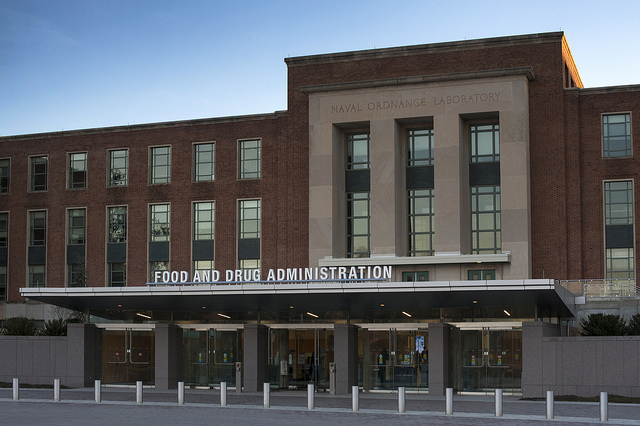
The Johnson & Johnson Covid-19 vaccine accounts for about 3% of total doses administered in the U.S., putting it a distant third behind the Pfizer/BioNTech and Moderna shots. A year after safety concerns led to a warning added to the vaccine’s emergency authorization, the FDA is further amending that authorization to limit who may receive the shot.
Authorization of the J&J Covid vaccine now covers only those adults who can’t take or do not have access to other approved or authorized vaccines. Last year, the FDA paused dosing of the authorized J&J vaccine while it investigated reports of blood clots. The FDA said that its latest amendment to the authorization follows its review of rare but potentially serious blood clot risks and low platelet levels that can develop within two weeks of dosing. FDA officials said the change it made to authorization reflects its updated analysis of those risks.
In non-Covid news, several drugs won approvals in the U.S. and Europe while a number of biotech companies encountered setbacks to their drug development plans. Here’s a recap of regulatory decisions and clinical trial developments from the past week.
Regulatory approvals
—Enhertu, a breast cancer drug that won accelerated FDA approval in 2019 as a treatment for advanced, HER2 positive breast cancer, now has the agency’s full approval. The decision was based on positive results form a Phase 3 study showing that the drug reduced the risk of disease progression or death by 72% compared to the trastuzumab emtansine. Enhertu was developed by partners AstraZeneca and Daiichi Sankyo. The drug is an antibody drug conjugate, a type of drug that links a toxic-killing drug payload to a targeting antibody.
—Orphalan won FDA approval for Curivor, a treatment for Wilson’s disease. The rare genetic disorder leads to excess amounts of copper being stored in various tissues of the body. Paris-based Orphalan has already commercialized the drug in Europe, where it is marketed as Cuprior.
—Supernus Pharmaceuticals won an additional FDA approval for its attention deficit hyperactivity drug Qelbree, covering its use treating adults. The regulatory nod comes nearly one year after the drug was initially approved for treating ADHD in children ages 6 to 17.
—Incyte drug Jakavi has a new approved indication in Europe. The European Commission approved the product as a treatment for acute graft versus host disease in patients 12 and older who have not responded to earlier lines of therapy. Jakavi, which is marketed in the U.S. as Jakafi, belongs to a class of medicines called JAK inhibitors. U.S. approvals for the product include graft versus host disease, polycythemia vera and myelofibrosis. The drug is marketed in Europe by partner Novartis.
—Phatham Pharmaceuticals won FDA approval a new drug that treats infection from Heliobacter pylori, a bacterial pathogen that effects an estimated 115 million people in the U.S. The Phatham drug Voquenza is comprised of the novel acid-blocking compound vonoprazan. Suppressing acid has been part of H. pylori treatment to improve the effectiveness of antibiotics. The regulatory approval covers two blister-pack products containing vonoprazan. One is a blister pack that include capsules of the antibiotics amoxicillin and clarithromycin, and another includes capsules of just amoxicillin. Phatham in-licensed the rights to vonoprazan from Takeda Pharmaceutical.
Hold on, not so fast
—Praxis Precision Medicines disclosed in a regulatory filing that the FDA sent an email notifying the company it has placed a clinical hold on the company’s investigational new drug application for PRAX-222, an antisense oligonucleotide that the biotech is developing for treating a form of epilepsy. The formal letter with details about the FDA’s questions or concerns is expected within a month.
—A clinical hold was placed on a Phase 1/2 study evaluating a Vertex Pharmaceuticals cell therapy for type 1 diabetes. According to the Boston company, VX-880, has been well tolerated by patients so far with no reports of serious adverse events. But Vertex said that the FDA told the company that there is “insufficient information to support dose escalation with the product.”
—A partial clinical hold was placed on a study evaluating BioCryst Pharmaceuticals drug candidate BCX9930, an experimental oral treatment for the rare blood disorder primary nocturnal hemoglobinuria. The company voluntarily paused enrollment in the study in early April to investigate higher levels of enzymes that are an indicator of kidney problems.
No go at the FDA
—The FDA turned down Axsome Therapeutics’ new drug application for AXS-07, the company’s treatment for acute migraine. Axsome said that the agency’s complete response letter noted problems with chemistry, manufacturing, and controls, concerns that the New York-based biotech flagged recently in a regulatory filing. Axsome said the issues are addressable and the company plans a resubmission after talking with the FDA.
—The FDA also handed out rejections to drugs from Hutchmed and partners Junshi Biosciences and Coherus BioSciences. Submissions for Hutchmed drug surufatinib, developed for neuroendocrine tumors, and the Junshi/Coherus drug toripalimab, an immuno-oncology drug for nasopharyngeal carcinoma, were both based on data primarily from clinical trials conducted in China. The rejections follow a complete response letter issued to a cancer drug from Eli Lilly and Innovent Biologics that was tested in China. The FDA has indicated it wants regulatory submissions to include clinical data from multiple regions, though the Junshi/Coherus letter specifically flagged a “quality process change” that the companies believe is readily addressable.
—Zosano Pharma has suspended its M207 program, which is a formulation of the migraine drug zolmitriptan that is delivered by microneedles on a skin patch. The FDA previously rejected the company’s drug application, citing inconsistent drug exposure levels across clinical studies. Though the FDA granted Zosano another year to resubmit its application, the biotech opted to suspend the program to preserve cash. In March, Zosano implemented a corporate restructuring that slashed staff by 31% and began an exploration of strategic alternatives.
Photo by FDA







